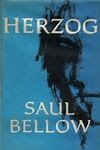I can't think of a writer more staunchly dedicated to style without giving a damn about making the job easier or more difficult for the reader than William Gaddis, author of such surreal American classics as The Recognitions and JR.
David Foster Wallace mentioned that if any writer wanted to know who had inspired him most, in terms of style and voice, it would be Gaddis. And this is most apparent in Wallace's last book of stories, Oblivion.
Linguistic tics befuddle, challenge, and inspire the reader throughout in a way that drew both praise and criticism from reviewer and novelist Walter Kirn, who seemed to get caught between marveling and denouncing the work for its overstimulated, tweaked-out abundance of hyper-detailing language and description.
In other words, fiction-Wallace as usual. But with Oblivion, it's Wallace after a lifetime of experience. The language, at first obfuscating the narrative, transforms itself into the picky, obsessive, anxious interior landscape of the character, and it fits. It fits well. The hard reading is worth it. For fiction lovers, it's a book to pore over.
Yet, if the authorial hand is too apparent in the advanced stylistic cues, he is also absent from what we usually expect in short stories, where the writer makes the time pass with a clumsy kind of "Two weeks later" exposition -- or as Gaddis calls it below, "narrative intrusion".
But what is the risk in losing yourself in the particular pattern of consciousness of the character? You run the risk of alienating the reader. You take a chance at overshooting your level of talent. There has to be a profound, layered context by which to root and justify your stylings.
And, as Gaddis says below, if you don't have the ear for voice, you won't soak it up no matter how hard you listen, pay attention, or take "special measures" to acquire it.
Here is a nice cutout from an interview in 1982 provided by Biblioklept:
 |
| Gaddis, 1975 |
Linguistic tics befuddle, challenge, and inspire the reader throughout in a way that drew both praise and criticism from reviewer and novelist Walter Kirn, who seemed to get caught between marveling and denouncing the work for its overstimulated, tweaked-out abundance of hyper-detailing language and description.
In other words, fiction-Wallace as usual. But with Oblivion, it's Wallace after a lifetime of experience. The language, at first obfuscating the narrative, transforms itself into the picky, obsessive, anxious interior landscape of the character, and it fits. It fits well. The hard reading is worth it. For fiction lovers, it's a book to pore over.
Yet, if the authorial hand is too apparent in the advanced stylistic cues, he is also absent from what we usually expect in short stories, where the writer makes the time pass with a clumsy kind of "Two weeks later" exposition -- or as Gaddis calls it below, "narrative intrusion".
But what is the risk in losing yourself in the particular pattern of consciousness of the character? You run the risk of alienating the reader. You take a chance at overshooting your level of talent. There has to be a profound, layered context by which to root and justify your stylings.
And, as Gaddis says below, if you don't have the ear for voice, you won't soak it up no matter how hard you listen, pay attention, or take "special measures" to acquire it.
Here is a nice cutout from an interview in 1982 provided by Biblioklept:
Style and content must match, must be complementary, accounting in part for a difference between the two books, though the lack of a conventional narrative style had already jarred a good many readers of The Recognitions when it appeared, as its hapless reviews show. J R was started as a story which quickly proved unsatisfactory, inspired- here’s the legitimate gossip—-by the postwar desecration of the Long Island village of Massapequa where my family had had property since around 1910, take a look at it now and you’ll see all the book’s worst hopes realized. In approaching J R as a novel, I was at pains to remove the author’s presence from the start as must be obvious. This was partly by way of what I mentioned earlier, obliging the thing to stand on own, take its own chances. But it was also by way of setting up a problem, a risk, in order to sustain my own interest, especially since the largely uninterrupted dialogue raised the further risk of presenting a convincing sense of real time without the conventional chapter breaks, white spaces, such narrative intrusions as “A week later . . .” How some of the writers I come across get through their books without dying of boredom is beyond me. As for what you call speech patterns, one is always listening and has got an ear or hasn’t, and without one, unless perhaps in dealing with an unfamiliar language and culture, no amount of your special measures like riding around on school buses will get you out of the swamp.
